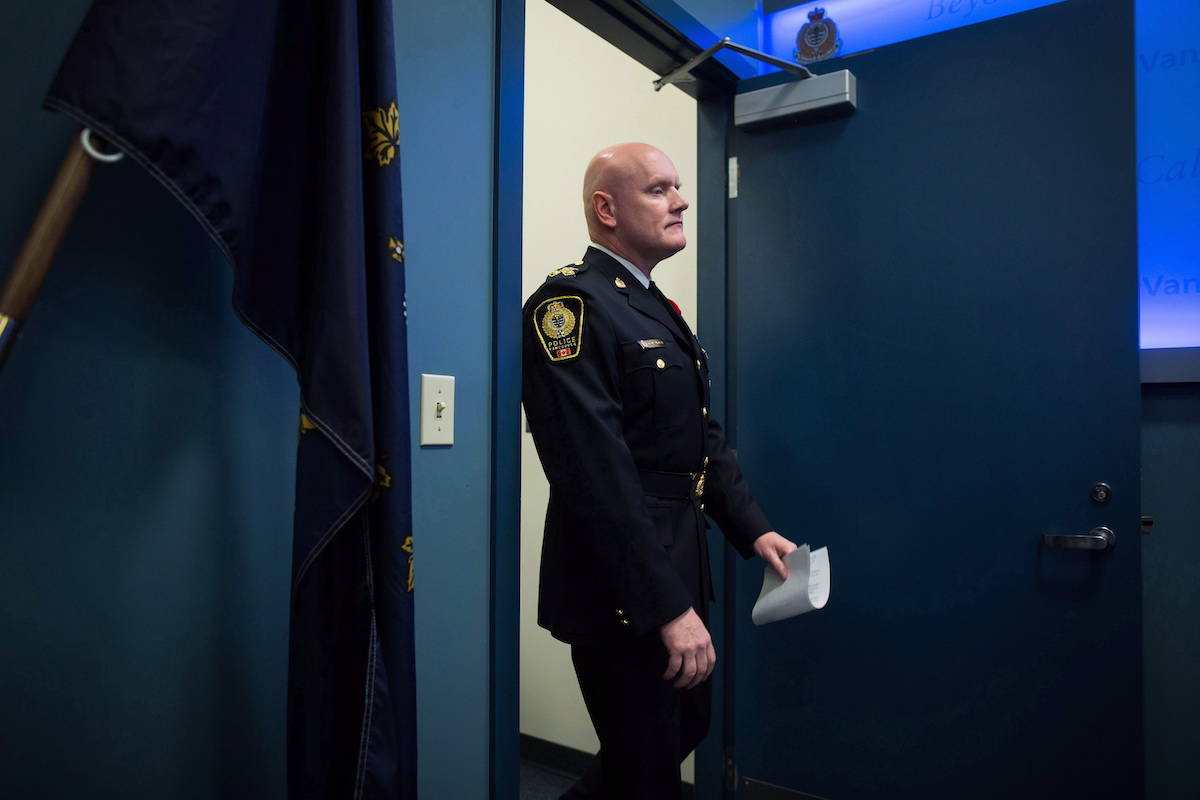By Jacob Cardinal, Local Journalism Initiative Reporter
ALBERTA NATIVE NEWS
The Canadian Association of Chiefs of Police (CACP) is asking federal lawmakers to decriminalize possession of illegal drugs for personal, recreational use.
The non-profit organization represents approximately 1,300 polices chiefs from federal, First Nations, provincial, regional, transportation and military police services across Canada.
CACP president Chief Const. Adam Palmer said, “Arresting individuals for simple possession of illicit drugs has proven to be ineffective. It does not save lives. The CACP recognizes substance use and addiction as a public health issue. Being addicted to a controlled substance is not a crime and should not be treated as such.”
“We recommend that Canada’s enforcement-based approach for possession be replaced with a health-care approach that diverts people from the criminal justice system,” Palmer stated.
According to the Government of Canada’s website, there were more than 21,000 suspected opioid-related overdoses occurred between January and December 2019, based on available Emergency Medical Services data from nine provinces and territories.
Between January 2016 and December 2019, 19,377 opioid-related poisoning hospitalizations occurred in Canada (excluding Quebec).
15,393 apparent opioid-related deaths occurred between January 2016 and December 2019.
In an addendum entitled “Drug Arrests in Canada, 2017,” by Susan Boyd, PhD, for the Vancouver Area Network of Drug Users, it was stated that in 2017, there were 90, 625 drug arrests in Canada (42% of those arrests were because of cannabis possession) there were 2,219 heroin possession arrests 8,996 methamphetamines possession arrests in Alberta specifically, there were 11,391 drug arrests, which is 266 per 100,000 people.
It is also stated in the addendum that “the illegal drug overdose death crisis in Canada stems from drug prohibition. It is estimated that in 2017, there were 3,996 preventable drugs overdose deaths across Canada.”
As for how the opioid crisis is affecting First Nations, in 2017 seven First Nations across Canada declared state of emergencies.
The Birdtail Sioux, Dakota Tipi, Long Plain, Roseau River Anishinabe, Sandy Bay Ojibwaym Swan Lake, and Waywayseecappo First Nations spoke at a news conference to raise awareness. “When I see our grandmothers, who are on prescription drugs, handing them out, it is purveyed right through our communities now, from our grandmothers and grandfathers down,” noted Chief Kenneth Chalmers, Dakota Ojibway Tribal Council chairperson.
In 2018, the Blood Tribe declared a state of emergency due to a surge in drug overdoses, which saw 30 overdoses within a week. Kevin Cowan, head of the Blood Tribe’s health department said, “It’s a terrible crisis. Everybody’s working hard, and there’s a lot of hurt and pain in the community.”
In late 2019, a report from Alberta Health and The Alberta First Nations Information Governance Centre, a Calgary-based research group, revealed that the opioid crises was disproportionally claiming the lives of Indigenous people in Alberta.
First Nations people account for about six per cent of the provincial population but represent 13 per cent of all opioid poisoning deaths between Jan. 1, 2016 and Dec. 31, 2018. The report also showed 1,957 people died from opioid poisoning in Alberta between Jan. 1, 2016 and Dec. 31, 2018. Of the total, 246 were First Nations people.
In early 2020, Onion Lake Cree Nation declared a state of emergency after a “rash of drug and gang-related activities.”
“The problem has been steadily increasing over the last year and it is now to the point that we are having three very serious and scary incidences happening in one day,” Okimaw Henry Lewis said in a statement. “Everyone is stretched to their limits.”
An update by the UNAIDS, who is leading the global effort to end AIDS as a public health threat, stated on March 3, 2020, that “Decriminalization of drug use and possession for personal use reduces the stigma and discrimination that hampers access to health care, harm reduction and legal services. In countries where drug use is decriminalized and comprehensive harm reduction is available, HIV prevalence and transmission tend to drop sharply among people who use drugs.
“Czechia, the Netherlands, Portugal and Switzerland are among a handful of countries that have decriminalized drug use and possession for personal use and that have also invested in harm reduction programmes. Consequently, diagnoses among people who inject drugs in those countries are low.”
Jacob Cardinal is a Local Journalism Initiative reporter for Alberta Native News.

